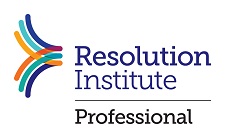Family reports – what are they and why are they important?
0January 23, 2020 by Todd
Family law parenting matters are really about people – and it tries to reflect the infinite uniqueness of us all. When a Court decides what is in the best interests of a child, it will do the best that it can to learn more about you, your child, your ex-partner and other people who are important in your child’s life.
One of the ways a Court can learn more about you is by making an order for the preparation of a report about your matter. These reports are prepared by people who are qualified as either social workers or psychologists, and who have particular experience working with children and families.
There are two main types of reports, depending on how far along the court process your matter has travelled.
Section 11F reports
Sometimes, early on in your matter, a Court may order one of these reports. They are relatively short (often between 2 and 4 pages in length), and involve you and your ex-partner sitting down with a family consultant (a family report writer employed by the Court) so that they can identify the issues in dispute in your matter and make recommendations about things that happen moving forward. The interviews will last a few hours. The family consultant will not read the subpoenaed material.
Section 62G family reports
These are longer form reports prepared by either a family consultant or a privately employed family report writer (paid either by the Court or by the parties). The person preparing your report will have individual interviews with you, the other party/s, the child and other important people in each household. They will read the subpoenaed material, and they may speak to other third parties like treating health professionals, teachers and so on. The interviews will usually take most of the day.
The report writer will speak to each party, the child and the other important people about issues important in your case. They will observe the interaction between the child, each party and other important people in individual sessions. They may, but may not, seek the views of the child.
What will the report writer be looking for?
Generally, the Court will ask the report writer to provide a report on specific issues. The report writer will likely ask everyone questions along those lines. Commonly, they will gather information about:
- The issues in dispute in your matter;
- What parenting arrangements were in place in the past, and what is happening now;
- The parenting capacity of each party;
- The relationship between the child, their parents and other important people;
- What your child would like to have happen;
- Whether there are any risks to your child in either household.
How should you approach the interviews?
Firstly, it is important for you to know that things said or done in family report interviews are not confidential.
Secondly, you should try to remain relaxed during the interviews. The family law process is a stressful process, but the role of the family consultant is to help the Court to make the best decision it can about your child. By being relaxed, you can help the family consultant do this.
Thirdly, be honest! The report writer will likely not only have access to documents filed by the parties in their case. Likely, they will have access to records from third parties produced in response to subpoenas – for example, from the Police, Department of Communities and Justice (also known as DOCS and FACS), your child’s school, medical professionals and so on. You should assume that the Court knows the backgrounds of you, your ex-partner, your child and other important people.
Fourthly, You may wish to have a look at the documents filed in your case. But remember – this is not a memory test. The report writer will best be able to do their job if they get to meet the real you – not someone who is stressing about remembering everything in their affidavit and repeating carefully prepared lines. Just keep in mind some broad things – what you would like the Court to do, and why you want the Court to do that.
The same goes for your child. Report writers are trained to see when children are not being themselves, but are saying things they’ve been told to say. If your child has questions, that’s fine! The Family Court has produced the following brochures below to help you out:
- For children aged 5-8: Why am I going to see a Family Consultant?
- For children aged 8-12: Why am I going to see a Family Consultant?
Finally, remember that the focus on the report will be on the best interests of your child – not on your best interests or your ex-partner’s best interests.
What if you don’t agree with the family report?
It’s ok to disagree with what a family report says. It is an important piece of evidence, but it is only one piece of evidence. The Court does not need to do what the report writer says. Their evidence can be tested at a hearing and the report writer can be cross-examined.
This is when it is important to get a good lawyer on your side! However, no matter how good your lawyer is, they can only do the best with the case you give them. If there are problems with the report, it is important that you tell your lawyer what your problem is and why you have that problem. If you have some independent evidence which supports what you say, that’s even better!
Let our knowledge be your edge. Contact us now!
Category Articles, Family Law, News | Tags:
0 comments
Sorry, comments are closed.



